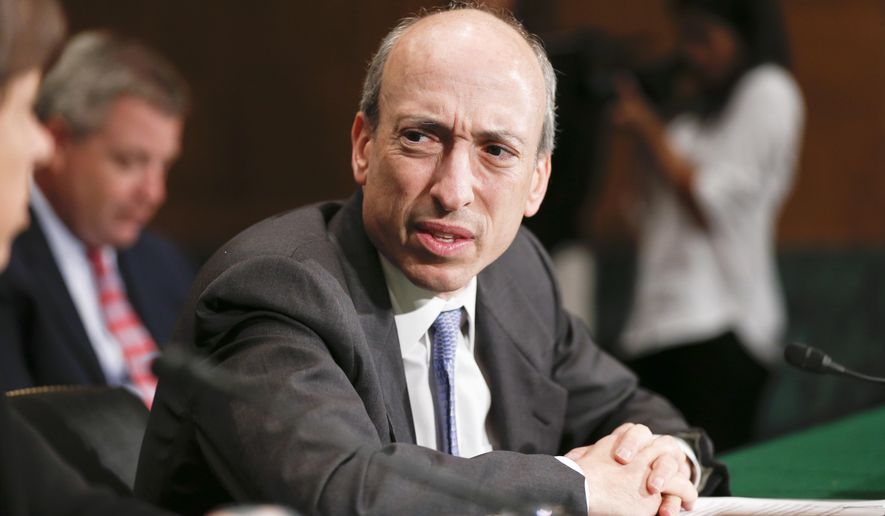Dozens of House Democrats urged the Securities and Exchange Commission on Monday to end what they called a “continued delay” over politics and implement a long-proposed rule for companies to disclose emissions data and climate risks.
A March 2022 proposal from the SEC would force publicly traded businesses to report to investors their carbon footprint and monetary risks posed by climate change, a controversial idea that’s received immense scrutiny from Republicans as being overly broad and expensive.
The SEC is believed to be making changes in response to feedback, but 80 House Democrats wrote to SEC Chair Gary Gensler that it’s past time to greenlight the rule.
“We are not naive to the environment that has unfortunately injected politics into requirements that should not be controversial and will better enable investors to analyze investment risk and return, allocate capital efficiently, and prioritize investment stewardship and engagement,” the lawmakers wrote. “However, this should not be a reason for continued delay.”
An SEC spokesperson declined to comment, telling The Washington Times that “Chair Gensler will respond to members of Congress directly, rather than through the media.”
The Democrats said the current voluntary climate reporting requirements lack “rigor, consistency and verifiability,” and that the U.S. should take after the European Union’s new sustainability reporting rules because thousands of American companies that operate across the pond are expected to be required to comply.
They also said investors have a right to know about potential financial risks, including from climate and weather disasters that totaled more than $165 billion last year, according to the National Oceanic and Atmospheric Administration.
“As climate-related risks continue to grow, investors urgently need access to decision-useful information regarding risks and opportunities that will likely have a material impact on registrants’ business, operations, or financial condition,” the House Democrats said.
But the SEC has sparked widespread pushback from critics who say the proposed rules include vague, costly and overreaching requirements that could be nearly impossible to assess. Opponents also say that such reports would have a chilling effect on new investments across the economy.
The proposal was thrust back into the spotlight last month by Republicans during a House Financial Services Committee hearing to examine ESG investing and legislation to block regulations that promote the climate-conscious strategy, such as the SEC’s climate disclosure rules.
Known as Scope 3 emissions under the proposed rules, the SEC wants larger companies to determine their broader carbon footprint by factoring in the emissions of other public companies they do business with within their supply chain. Opponents note that these larger companies lack control or ownership over emissions of other companies with which they conduct business.
Georgia Democratic Rep. David Scott voiced concerns about how farmers and ranchers may be impacted, particularly their ability to receive loans if banks embrace ESG or must consider their downstream carbon footprint from other businesses.
Mr. Gensler has tried to quell concerns about the proposed climate disclosure rules and suggested they will be scaled back with more narrowly tailored requirements. He also testified to senators last year that there was “no goal to touch farmers in any of the states you represent — or ranchers” and that the rule would not apply to any private companies, including private farms.
• Ramsey Touchberry can be reached at rtouchberry@washingtontimes.com.




Please read our comment policy before commenting.